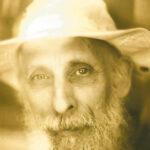A friend recently asked me to name three things I’d want from a faith community. I think it’s an excellent query for every Christian to ponder. But my first response was, “What would the Lord want me to want?” and I think that’s a better question. It took a few days for these three answers to come to me, and I think they’re pretty good ones, but I’d also welcome better ones from anyone who reads this:
1. I’d want us to love one another (John 13:34, 15:12, 17; 1 John 3:11, 4:11; 1 Peter 1:22 (KJV) adds “fervently.” 1 John 3:16 adds, “and we ought to lay down our lives for the brethren”). We all know from our first moments in our mothers’ arms how sweet love is, but then life teaches us how much pain love costs us. For love’s sake, we must often put selfish preferences aside, forgive what seems unforgivable, reprove erring people who may hate us for rebuking them, and voluntarily take on more suffering than we’re sure we’ll be able to bear – all of which, we know, Jesus did. And perhaps no one will ever notice or appreciate the things we do for love, but ridicule or despise us for them. No matter; our true nature is Love.
It happens that we may find ourselves already embedded in a faith community that’s seriously lacking in love, most commonly because its members are too much in bondage to fear, and it may be our task to model loving behavior within it anyway. Or should we leave it and find some other? The question is not ours to decide, but the Lord’s. He can be counted on to show us what to do, and when. The infallible Teacher of love is ever-present to those who have no will but to do His will.
2. I’d want our community to be a safe place for each one’s purification and transformation. Our walk with Christ takes us, sooner or later, through the “refiner’s fire” of Malachi 3:2, where we are made into
members of Christ’s body, and our flesh and blood Christ’s flesh and blood. This is a transformation (Rom
12:8, 2 Cor 3:18) comparable to the metamorphosis of a caterpillar into a butterfly, and requires us to “mortify” our attachments to transitory things (Rom 8:13, Col 3:5), which in any case “shall be dissolved” (2 Pet 3:11). All our false personality must go, and the fears that have bound us to it must be abandoned. In a 1674 tract written from prison, George Fox (1624-1691), founder of the Quakers, testified, “when Christ sets fire in your hearts and minds, that never shall be quenched till the chaff is burnt up… ” (“The People of God in Scorn Called Quakers, Their Love to All Mankind Asserted,” in Fox, Works, 5:224).
This “burning of the chaff” may feel like the loss of everything, but it’s an unavoidable part of our walk
with Christ, who calls us to give away all that we have (implying both the tangible and the intangible), take
up our cross, and follow Him (Mark 10:21). Once we do this, we may feel the great need for one another’s help and comfort. Any who have passed through the refiner’s fire, or any part of it, should understand the needs of those newly plunged into it and be tenderly attentive to them. These are the spiritual elders of the community. If there is no one doing this work, that may mean that we are called to serve as the elders.
3. I’d want us to be a light to the world, like a city set on a hill (Matt 5:14). In the “Sealed Epistle” George Fox left to be opened after his death, he told the fledgling Society of Friends that they had been a “city set on a hill, that cannot be hid” (in Fox, Works, 2:364). Serving a sin-, deceit-, and selfishness-darkened world by being as a city set on a hill is a precious and holy service. There are many ways of doing that, but they
all start with the desire to shed light. Most of us today have never had the experience of walking through
wilderness on a starless, moonless night, where the sight of a single, unmoving, elevated source of light
makes all the difference between being oriented and being lost, so Jesus’ metaphor has lost some of its
original immediacy. But I can’t minimize the value to a lost wanderer of one person, or one community, that
stands fast in the Lord’s peace. People who need it will feel our innocence and openness to being
approached and will seek us out. Be ready to meet them with the wisdom and tenderness they seek!
Covet earnestly the best gifts, friends, as Paul said (1 Cor 12:31). Covet them, ask for them, and live your
lives in a manner worthy of receiving them. Here are three very precious gifts: the gift of love, the gift of
eldership, and the gift of light to the world. As we share them with others, may they bring us closer to Christ
their source. Amen.

John Jeremiah Edminster (M. Div., Earlham School of Religion, 2019) worships regularly with Conservative Friends and hosts the Tuesday evening House of Light Friends’ Worship Group in his home in Richmond, Indiana. He carries a concern to promote surrender of self to Christ.

What does it mean to be a gathering space for thoughtful and creative reflections on the history, theology, and modern practices of the Church of the Brethren and related movements? Brethren Life & Thought has a long history of working to be such a space. We’re excited to bring our content online through DEVOTION: A Blog by Brethren Life & Thought. Here, you’ll find sermons and other writings from Brethren, Mennonite, and Quaker writers from a variety of theological and social contexts. Some weeks, you might read a piece that resonates with you. Some weeks, you might read a piece that challenges you. Some weeks, you might read a piece you think is heretical. For good or for ill, the Anabaptist and Peace Church movements are remarkably diverse in faith and practice. This blog attempts to expose our readers to the vastness of that diversity – even when it makes us uncomfortable. As you comment, which we highly encourage you to do back on our Facebook page, please remember to do so in light of our membership in the Body of Christ. Let us be different than the world for Jesus truly does invite us to another way of living.

